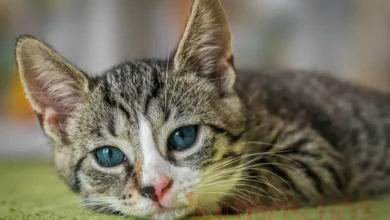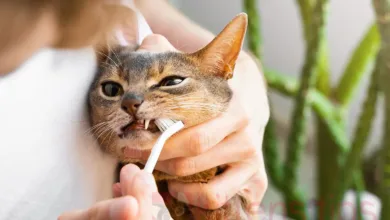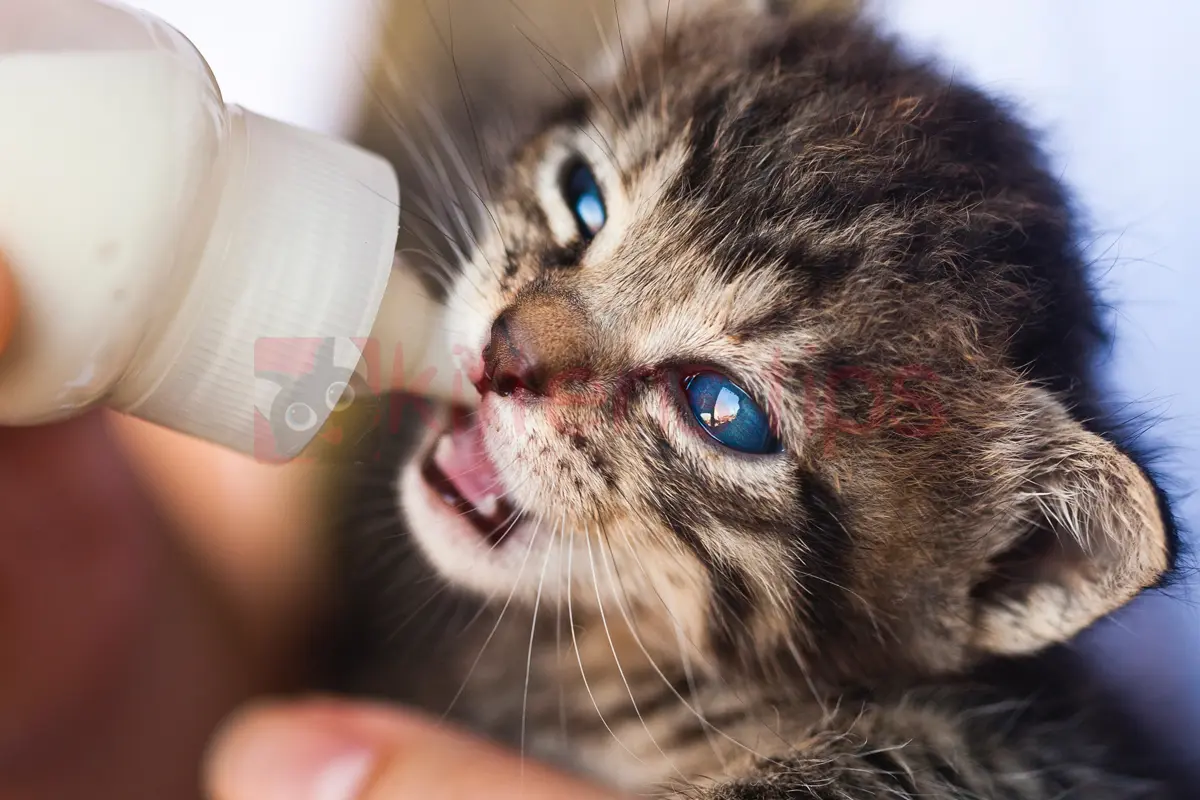
Caring for Abandoned Newborn Kittens Without a Mother Cat
Caring for Abandoned Newborn Kittens Without a Mother Cat can be a challenging yet deeply rewarding endeavor for anyone who finds themselves in this situation. Whether you’ve stumbled upon a litter of kittens without a mother or have taken on the responsibility of fostering orphaned kittens, your care and dedication play a crucial role in their survival and well-being. In this guide, we will provide you with valuable insights and practical tips on how to nurture these tiny felines, ensuring they grow into healthy and happy cats despite the absence of their mother’s care.
Are you in a situation where you have an orphaned kitten that can’t feed itself, and knowing how to care for newborn kittens is absolutely essential to give them a chance at life?
First and foremost, let’s clarify two important points:
1. If you find kittens that are a few days old, appear to be in good condition, are clean, don’t seem weak or dehydrated, it’s highly likely that these kittens are not orphans. The mother cat is likely nearby, especially if you don’t have information about the mother’s whereabouts. It’s advisable to observe for a while to see if the mother cat returns. It’s not recommended to leave the kittens without shelter even if they seem to be in good condition.
2. Most kittens that are only a day or a few days old end up abandoned due to human interference. They are often found discarded in trash bins, sealed in plastic bags, or, in the luckiest cases (if we can call it that), left in a box in a public place.
Now, let’s explore some useful tips on what to do if you’ve found a newborn kitten and want to care for it.
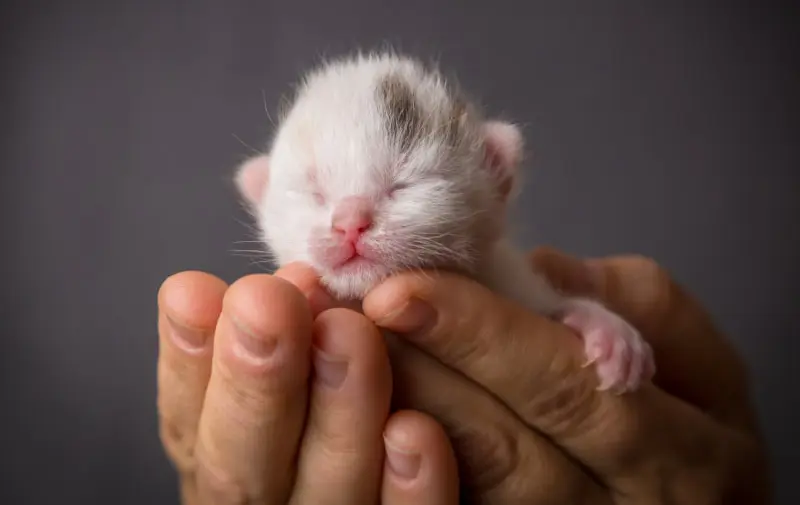
Table of Contents
How to Care for Orphaned Newborn Kittens
The first piece of advice, especially when caring for abandoned newborn kittens, is to take them to the nearest veterinary clinic. Veterinary professionals can provide you with the best guidance on how to care for these kittens and perform a medical examination to identify any potential health issues.
If you’re not near a veterinary clinic, or for various reasons can’t seek professional assistance, you should consider the following aspects.
Maintain the normal body temperature of the kitten.
Newborn kittens need to be dry and have a normal body temperature. If the kittens are wet or it’s cold outside, the first thing you should do is warm them up.
The normal body temperature for a cat should be slightly higher than that of a human, somewhere around a minimum of 38°C to 39.3°C. Kittens under 3 weeks of age cannot regulate their body temperature on their own. Those who have had or currently have mother cats with young kittens know that during the first 3 weeks, the mother cat stays close to the kittens almost constantly. When she leaves to feed or tend to her needs, she returns to the kittens very quickly. This is precisely the reason – besides providing food, she ensures an optimal temperature with her own body.
If the kitten is wet or it’s cold outside, you should warm it up before feeding. You can gently dry it with a soft towel. For warming, use a warm water bottle wrapped in a towel. Place the kitten on a soft blanket or towel with the warm water bottle nearby.
Be very careful not to suffocate the kitten or expose it to too much heat. Leave space for it to breathe and change its position if it gets too warm.
If the kittens have been warmed up but still don’t appear to be in good condition, it’s likely due to low blood sugar. Kittens can experience a rapid drop in blood sugar if they are not fed on time. As an emergency measure, you can use a few drops of glucose or a bit of plain water with 5% sugar or honey. Honey can also be used to regulate the digestive tract. A small tip of a teaspoon of honey in milk can help.
Feeding Newborn Kittens
Just like young children, newborn kittens need to eat frequently but in small amounts. This means that, first and foremost, you’ll need to dedicate nearly constant time and attention to them in the first 2-3 weeks. However, don’t worry too much because newborn kittens sleep a lot.
As for their food, the only suitable option is milk, but not just any milk. Avoid giving them cow’s milk. Instead, opt for goat’s milk or powdered milk. You can find powdered milk kits with special bottles for feeding newborn kittens at pet shops and veterinary pharmacies.
Be cautious when administering the milk. It should be slightly warm. You can test the temperature on your wrist, much like how it’s done for young children. Newborn kittens should be held with their chests raised and not like human babies on their backs, as milk can reach their trachea.
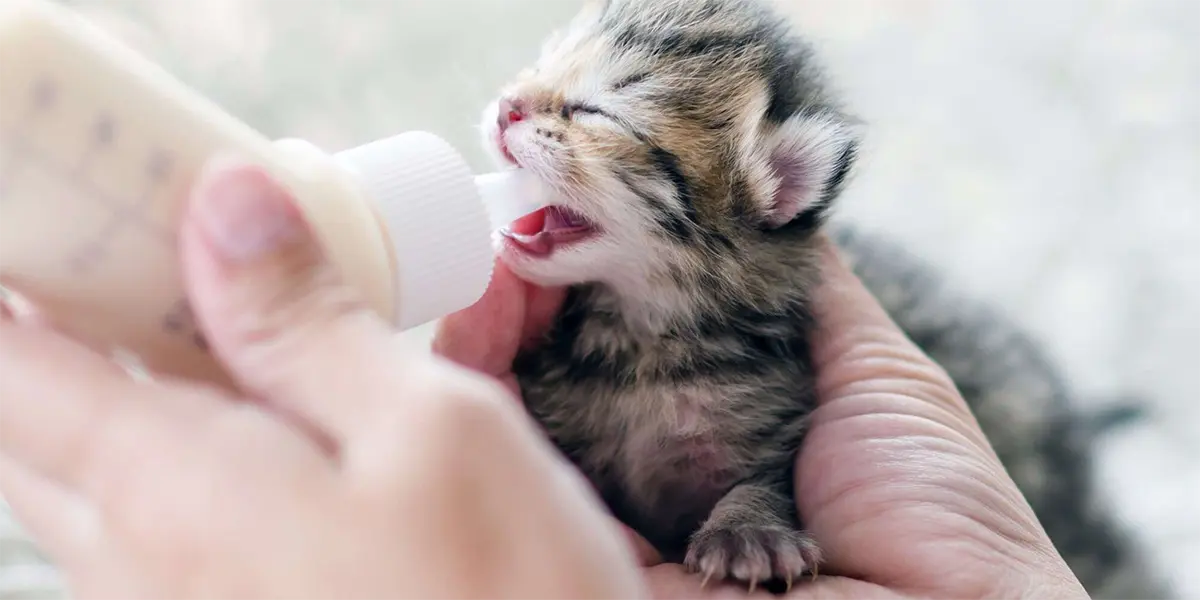
The feeding portion should be determined based on the kitten’s age. In the first week, it’s sufficient to give them between 2 and 4 ml of milk at each meal. Ideally, feeding should occur at 2-hour intervals, even at night. Of course, there won’t be any issue if the kitten goes without food while you rest. After the first week, it’s recommended to feed them every 3-4 hours, gradually increasing the quantity to 5-10 ml. By the third week, 5 meals a day with 10-15 ml of milk at each meal should be enough. After 4 weeks, kittens should be fed according to their individual appetite. Avoid overfeeding as it can lead to digestion problems and diarrhea. Starting from 5 weeks of age, kittens begin to learn to eat on their own, and you can start phasing out the bottle. Still, stick to milk. It will take some time until their teeth develop enough to eat wet food, and their digestive system isn’t quite ready for it yet.
When they start eating on their own, you can find a variety of special kitten food at pet shops.
Recipes for Feeding Newborn Kittens
In emergency situations, newborn kittens can be fed with a syringe at the corner of their mouths. Be careful not to harm them!
If you don’t have a veterinary pharmacy nearby or the ability to purchase specialized powdered milk for newborn kittens, you can use goat’s milk or a homemade recipe as a milk substitute. The recipe consists of:
- 90 ml condensed milk
- 90 ml water
- 120 ml plain yogurt (not low-fat)
- 3-4 egg yolks, depending on size. NO egg whites!
Another recipe that can substitute for kitten milk is:
- 250 ml (1 cup) goat (or cow) milk (3.5% fat)
- 1 egg yolk
- A pinch of honey
- A few drops of lemon juice
- 2 tablespoons of baby colic tea
Physiological Needs of Kittens – Defecation and Urination
After 20 days of life, kittens need to defecate and urinate; otherwise, toxins will accumulate in their bodies, potentially leading to death. The mother cat frequently licks the genital area of the kittens to stimulate these vital functions.
You can use a damp corner of a cloth, a makeup pad, or any other soft, wet material to gently pat the genital areas of the kittens. Do this twice a day. They will begin to relieve themselves, and as they start moving around, you’ll need to provide a small litter box and cat litter.
In theory, you don’t need to teach kittens to use the litter box. Just show them once where the litter is, and they will instinctively go there when needed. It’s a primal feline instinct to cover up any physiological traces that could be detected by prey or predators.
Related: How to Raise a Happy Kitten. 10 Very Useful Tips
Deworming Kittens
Caring for abandoned newborn kittens without a mother cat also involves addressing their deworming needs. If these kittens were found outdoors or in less-than-ideal conditions, they may have picked up fleas or other parasites. However, it’s important to note that deworming should be approached cautiously and typically only initiated by a veterinarian after the kittens reach a certain age, usually around 8 weeks. Veterinary clinics offer specialized solutions such as sprays and powders designed for the deworming of kittens. Proper deworming is a crucial aspect of ensuring the health and well-being of these tiny feline companions, and it should be integrated into the overall care routine when needed.
